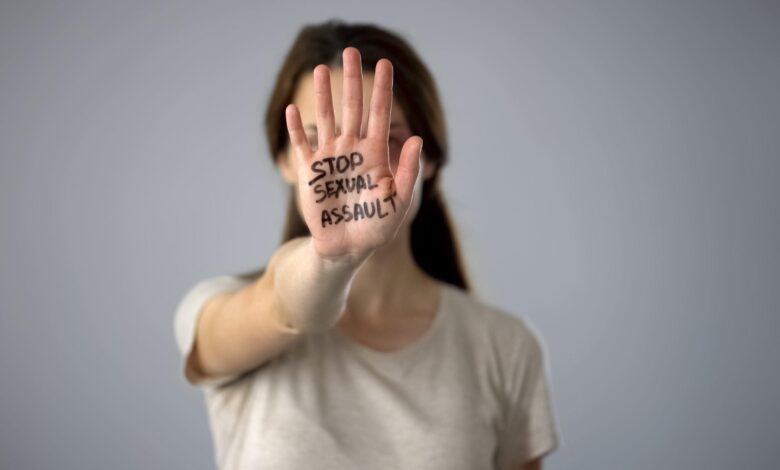Sexual Assault and Your Rights – Top 13 Things to Know

Sexual assault is a form of physical violence carried out against men, women, and children. These assaults take place all over the world. But the alarming thing is, it is the most underreported crime, nearly 95% of victims don’t report it.
If you are a sexual assault victim, Stewart Miller Simmons Trial Attorneys can help build a case that brings justice and a fair settlement for you. Despite numerous laws and punishments protecting the victim of such crimes, nearly 98 % of perpetrators will walk free due to insufficient evidence or a technical blunder by the prosecution. However, the first step towards getting justice is to come forward and call out your offender. Following are some of the things you should know when reporting or pursuing such assaults.
1. Gender:

Sexual assault is carried out against both men and women; although the percentage of women is much higher, men are also vulnerable to such acts. A disturbing fact about sexual assault is, it is also carried out against children. Each gender group has different laws and punishments against assaults. Find an attorney who has experience dealing with sexual assaults of all genders and age groups.
2. Record Everything:
If you are a sexual assault victim and seek justice, it’s good to record as much physical evidence as possible. It’s a hard thing to do, especially just after the assault; the trauma itself paralyzes you both physically and mentally. But this is a necessary thing to do if you want your case to have undeniable evidence. Make videos of the injuries, take photographs of the surroundings, and don’t miss a thing. Nearly all the cases won recently had strong evidence submitted by the victim.
Hospitals have trauma centers that will help you record all the evidence. SART [Sexual Assault Response Team] has specialized nurses who will take all bodily evidence into custody without tampering with the evidence.
3. Call Police Immediately:

When an assault takes place, don’t be afraid to call the police immediately. Most crimes are solved within the first 24 hours, even if the criminal is someone you don’t know. The biggest mistake an assault victim can make is waiting to contact the law enforcement agencies. Don’t do that; no matter how hard it is, call the police; they are there to help.
4. Go Private:
The court allows the findings and reports of private tests that confirm a sexual assault as evidence. If there are some delays or you find the attitude of law enforcement unhelpful, don’t be afraid to go to a private doctor for a test. You can take those findings to your attorney and he’ll deal with the rest. Remember, a medical report is in itself a guilty verdict, don’t shy away from it.
5. Type of Assault:

Sexual assault has to be physical to be considered an assault. Unwanted sexual contact or without consent, in many parts of the world, is defined as Rape. Unfortunately, sexual harassment is not considered as a physical assault and, as such, is not treated under the same laws. Knowing the type of assault helps make a strong case against the abuser and also your attorney builds it accordingly.
6. Restraining Orders:
It’s a shame that most of the sexual assault cases are against someone the victim knows. Easy access and the mental trauma to the victim aggravates the problem further. If you have suffered an assault at the hands of someone you know, getting a restraining order should be a priority. This helps prevent any further mental damage and would also keep you safe from your abuser until he’s brought to court.
7. Speak Up:
A sad reality of sexual assaults is they are hardly reported; the stats become even grimmer when it comes to children. If you don’t speak up, no one would know what you suffered. Talking about it openly to law enforcement helps in making a stronger case. If the evidence is sufficient, the abuser will be arrested immediately, and an appropriate attorney will be assigned if you don’t have any.
8. Never Exaggerate:
Sexual assault is certain to make you vengeful; it will make your case weaker if you exaggerate the incident. Your attorney should know only the exact and true details of the assault that can also be backed up by irrefutable evidence. If you exaggerate or add details without evidence, then you can lose the case.
9. Forensic Examination:

All the laws against sexual assault dictate that if a person is above 18 years, they can be forensically examined to confirm the assault. Consent from the parents or the guardians of the victim is necessary for anyone below the age group. A forensic exam is a must to register a case and make it stronger, it’s hard mentally but don’t avoid it.
10. Organized Paperwork:
Before hearings in the court, it’s wise to organize your paperwork regarding the case. Your attorney has all the details, but having copies of the same in an organized manner helps you understand your case better.
11. Experienced Attorneys:
Most sexual assault cases are lost due to the incompetence of the attorney. Before filing for a sexual assault case, look for an attorney with a high success ratio and who has experience dealing with such cases on all levels. An experienced attorney will win you the case and also a fair settlement.
12. Avoid Cross-examination:
Unfortunately, many sexual assault cases are lost when a victim takes the stand to be cross-examined. Already under mental stress, the defending attorney will cross-examine a victim rigorously. Chances are, under pressure, a victim might fold, and something goes against them. Avoid cross-examination or taking the stand altogether; let your attorney fight for you.
13. Seek Help:

Perhaps the biggest crime a victim can commit after being sexually assaulted is hushing up and not seeking help. Talking about it to your friends and family is not only a road to recovery but a chance to make your case stronger.
Sexual assault victims are vulnerable; they become mentally and physically weak after the ordeal. But, remember seeking proper help and knowing the rights is all that the victim needs to recover from it. Naming your assaulter will not only shame him but also alert others around him.

